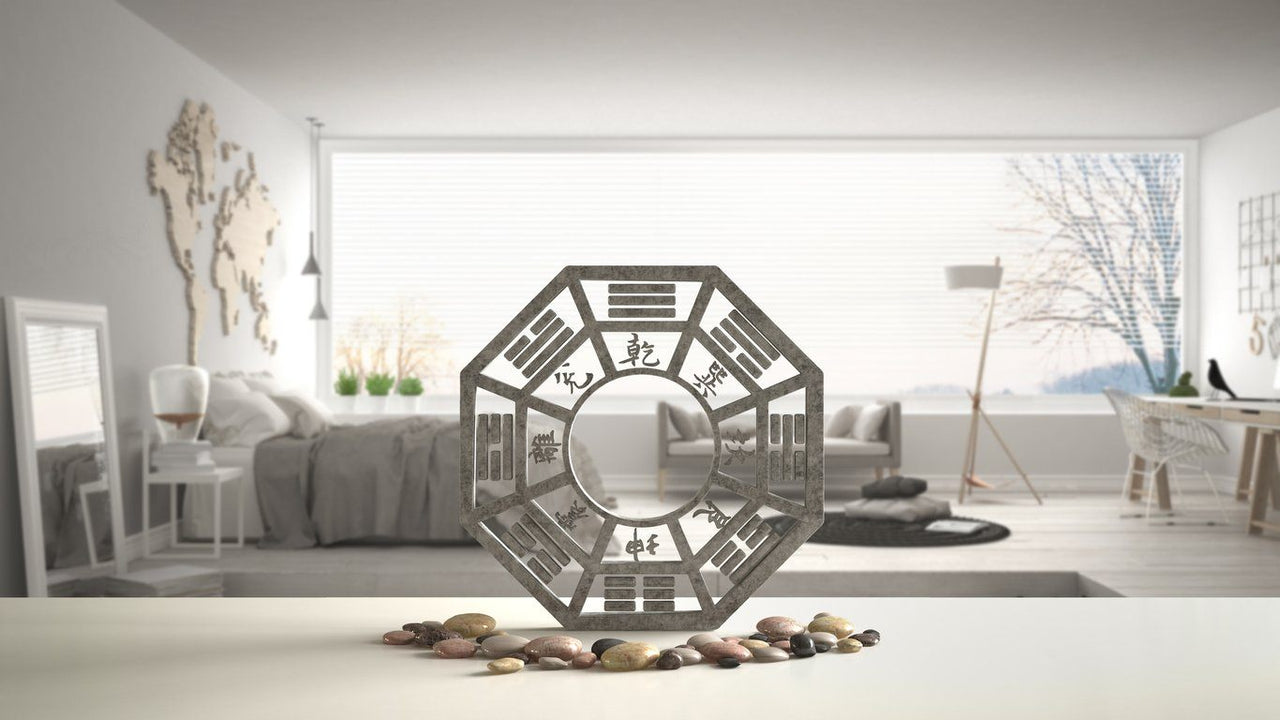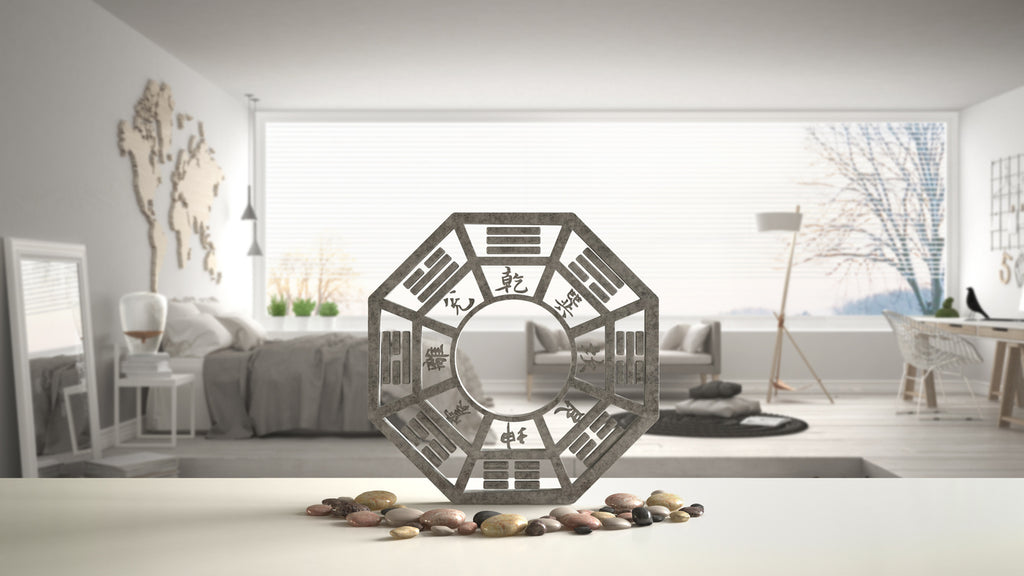Feng Shui: A Short History and Practical Tips for Beginners


Before we get started, it is important to understand that Feng Shui is not just another interior design gimmick or home-improvement tip. It is a practice deeply rooted in Chinese thought and culture, rich in meaning and significance in its own right. Rather than just quickly clamping onto it as an intriguing decorating style, we should take some time to consider its full significance.
Therefore, before we discuss some practical Feng Shui tips for beginners, we will outline a brief history along with a few cultural observations.
A Short History
Feng shui (traditional Chinese: 風水; simplified Chinese: 风水; pinyin: fēng shuǐ) is an ancient Chinese scientific practice or art to utilize the laws of both heaven (astronomy) and earth (geography) to have an effect on the flow of the circulating life energy Chi (気, Qi). "Feng" literally means "wind" and "shui" means "water." (Nations Online)
The principles of Feng Shui date back thousands of years. First used in the siting of graves, Feng Shui helped descendants choose peaceful resting places for their ancestors.
Eventually, as the philosophy grew, it began to influence Chinese thought leaders down through history.
Feng Shui was documented as early as 960 B.C., and a great flowering of Feng Shui took place during 770-475 B.C. under Zhou rulership. Taoist philosophers from the late Zhou period (600-221 B.C.) include Loa-tzu, author of Tao Te Ching, and Mo Ti, the teacher of universal love. The third great philosopher was Confucius. The philosophies of Taoism, Buddhism, and Confucianism formed Chinese culture and influenced Feng Shui development. (Marquette University)
As the concept of Feng Shui grew and developed, it slowly began to influence art and architecture. Its influence spread first throughout China, then the East, and eventually to the West.
Now Feng Shui can be seen applied around the world. Both building interiors and exteriors have all been influenced by the principles of Feng Shui. Major commercial developers and city planners have even been known to apply its principles to their plans.
Before you decide whether or not it's right for you, we want to make a quick observation about how culture factors into all this.
A Quick Cultural Observation
In its most basic sense, Feng Shui is less about object placement based solely on visual appeal and more about placement based on the interconnectedness of all things. We should slow down and take this in because it's a concept often too quickly glossed over.
Feng shui is sometimes thought to be the art of placement — understanding how the placement of yourself and objects within a space affects your life in various areas of experience. It is a complex body of knowledge that teaches you how to balance and harmonize with the energies in any given space — be it a home, office, or garden. Its aim is to assure good fortune for the people inhabiting a space.
In other words, it's not just about where things are in space, but about what they do while inhabiting that space.
Culturally, this system of thought underscores a belief that everything is connected. For Americans steeped from birth in a culture of individual autonomy, this sort of thinking may not come naturally. The sort of mental and emotional work required for Feng Shui will not be instinctive to many of us. Instead, it must be practiced.
That's why one of our first practical tips will be to consult with a professional. They'll keep you from making mistakes, misappropriating principles, and getting in too far over your head.
Practical Tips for Beginners
As most beginners find, it's tough to start out on something new by yourself. Just as you wouldn't climb Everest alone without a guide (or, possibly, ever), you can't expect to dive into the art of Feng Shui alone and expect to master its principles in an afternoon or two. Nor should you have to! The good news is that experts and consultants make themselves readily available, so do your Googles.
Our second piece of advice flows from the first. If you're going to take time to consult an expert, be willing to follow through on their advice. Making this mental shift early will keep you from second-guessing or fighting the process mid-way through. If you live and/or make decisions with a partner, discuss this with them ahead of time to be sure you are both on the same page. This will save you lots of potential grief down the road.
Third, consider how your personal actions and habits may factor into your experience with Feng Shui. As you research the philosophy (or learn from your consultant), one of the underlying tenants of Feng Shui deals with how everything in your environment is interconnected. Therefore elements of your life that you may not consider to fall under the auspices of keeping a Feng Shui home may be affected. Everything from cleanliness, water use, and lighting can be part of your Feng Shui experience.
Finally, remember what Feng Shui is and is not. Though it's been boiled down in many people's minds as merely a simple "art of placement," it's not just another home decorating gimmick. It's an entire philosophy with roots sunk deep in history. Learning that history and considering its implications may help you decide if it's the right move for you.
We Can Help
Here at Nest Bedding, we don't consider ourselves Feng Shui experts. In fact, pretty much everything we know on the topic we've already told you in this post. It's not that we don't care. We're just saving our mental energy for our area of actual expertise: providing premium mattresses at affordable prices.
If you would like to hear more about our mattresses or discuss which one would best meet your current needs, please contact us directly. Better yet, stop by one of our showrooms and see for yourself exactly what we have to offer.
Our helpful, well-trained staff is standing by to help. (And should you like to look around by with no pressure from us, we promise to stay in standby mode for your entire visit.)
Looking forward to serving you soon!




